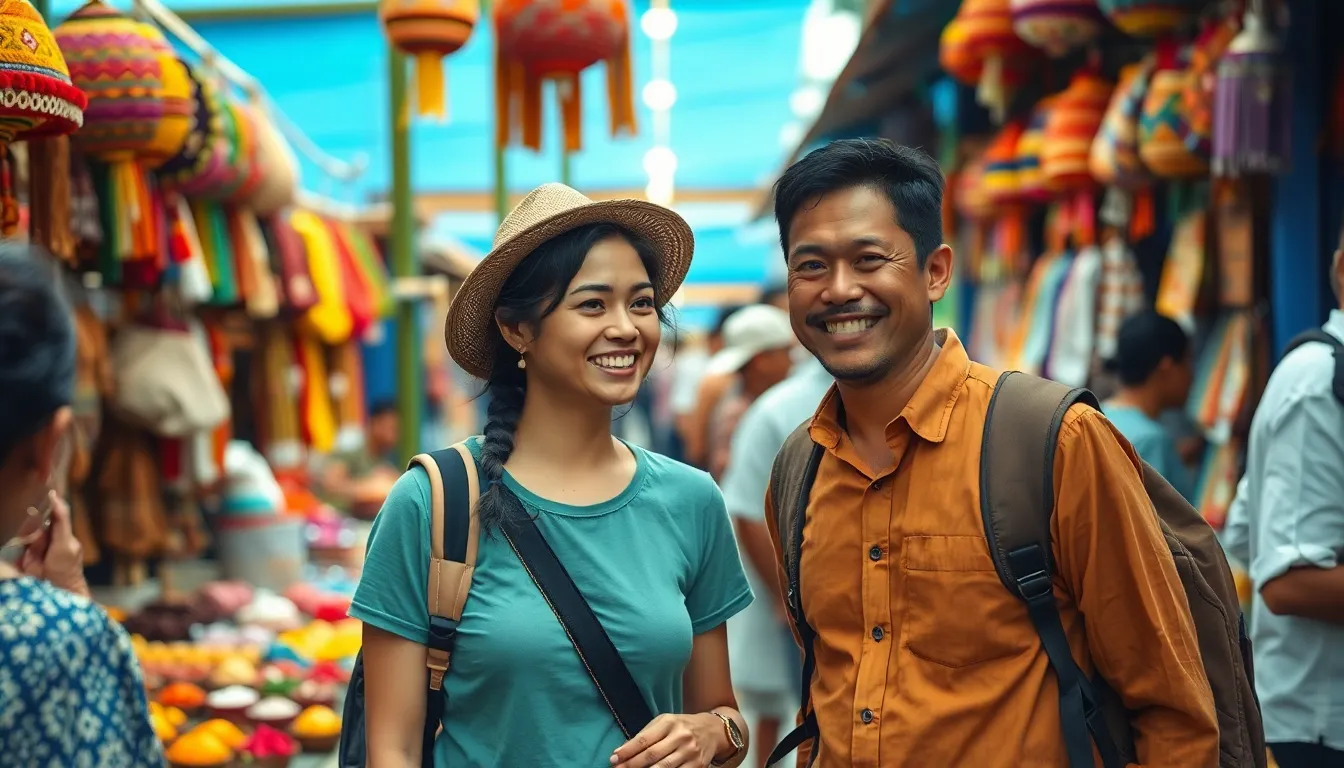Traveling opens doors to diverse cultures and experiences, but navigating these unfamiliar landscapes can be tricky. Unique cultural tips can make all the difference in fostering meaningful connections and avoiding missteps. By understanding the nuances of local customs and traditions, travelers can enrich their journeys and create lasting memories.
Whether it’s knowing the right greeting in Japan or understanding dining etiquette in Italy, these insights transform a simple trip into an immersive adventure. Embracing the local way of life not only enhances personal experiences but also shows respect for the host culture. Let’s explore some unique cultural tips that will elevate any travel experience and ensure a smoother journey through the world’s vibrant tapestry of traditions.
Table of Contents
ToggleUnique Cultural Tips Overview
Understanding local customs enhances travel experiences. Engaging with greetings demonstrates respect for the host culture. In some countries, a firm handshake is a standard greeting, while others prefer a light bow.
Dining etiquette varies globally. In Japan, it’s important to say “itadakimasu” before meals. In contrast, in Italy, finishing every last bite shows appreciation for the meal served.
Gift giving holds different meanings in various cultures. Giving an even number of flowers is customary in many Western cultures, while an odd number is favored in Russia. Presenting gifts with the right hand or both hands can signify respect in Asian cultures.
Body language plays a crucial role. Maintaining eye contact indicates confidence in Western societies, whereas in certain Asian cultures, it may come off as disrespectful. Understanding these nuances leads to better interpersonal connections during travels.
Language barriers can complicate interactions. Learning basic phrases, such as “thank you” or “hello,” can foster goodwill. Using local dialects shows effort and respect for cultural differences.
Transportation customs differ worldwide. In some cities, public transportation operates on a timed schedule, while in others, it relies on availability. Familiarizing oneself with these systems aids in smoother navigation.
Recognizing and adhering to dress codes is essential. In many religious sites, modest clothing is required, while beach destinations typically offer a relaxed dress environment. Dressing appropriately demonstrates respect for local values.
By exploring and respecting these unique cultural tips, travelers enhance their journeys and create lasting memories.
Understanding Cultural Context

Understanding cultural context enriches travel experiences and fosters meaningful interactions. Recognizing the significance of cultural nuances enhances mutual respect and appreciation.
Importance of Cultural Awareness
Cultural awareness plays a vital role in successful interactions while traveling. Knowledge of local customs leads to deeper connections with residents. Recognizing differences in communication styles, such as direct versus indirect approaches, can prevent misunderstandings. Respecting cultural norms, including personal space and gestures, demonstrates consideration and sensitivity toward hosts. Travelers who prioritize cultural awareness contribute to positive experiences and establish goodwill.
How Culture Shapes Behavior
Culture significantly shapes behavior, influencing social interactions and daily practices. Societies may vary in their expressions of politeness, formality, and emotional displays. In some cultures, actions like interrupting during conversation signify engagement, while in others, they breach etiquette. Additionally, decision-making processes can reflect cultural backgrounds; collectivist societies may prioritize group harmony, while individualist cultures often favor personal opinions. Engaging with and adapting to these behavioral norms enables travelers to navigate social situations more effectively and cultivates rewarding exchanges.
Unique Cultural Tips for Different Regions
Understanding unique cultural practices across different regions enhances travel experiences. This section provides insightful tips tailored to four major areas: Europe, Asia, Africa, and the Americas.
Europe
In Europe, greetings vary by country. In France, a light kiss on both cheeks is common among acquaintances, while a firm handshake prevails in Germany. Dining practices are equally distinct; in Spain, it’s polite to wait for the host to start eating. Tipping norms differ, with Italy typically rounding up the bill rather than expecting high gratuities. Familiarity with these nuances enhances social interactions and demonstrates respect for local customs.
Asia
Asia exhibits diverse traditions. In Japan, bowing signifies respect and appreciation, while direct eye contact may be perceived as confrontational in some Southeast Asian cultures. Dining customs are significant; in India, using the right hand for eating honors cultural beliefs. Gift-giving also carries weight; avoid giving an even number of flowers, as it signifies funerals, particularly in China. Adhering to these practices shows cultural sensitivity and promotes positive connections.
Africa
African cultures are rich in varied traditions. In many countries, greetings are elaborate, often involving inquiries about family. In Nigeria, greetings reflect respect, and it’s polite to greet elders first. Dining customs may include communal eating, where sharing a meal strengthens bonds. Dress codes vary; in North Africa, conservative attire is customary. Understanding these practices promotes deeper relationships and respects local values.
Americas
In the Americas, cultural practices vary widely. In the United States, a firm handshake is standard, but in many Latin American countries, a warm hug accompanies greetings. Dining etiquette includes sharing a meal as a sign of friendship; it’s common to leave a small food offering if invited to someone’s home. Awareness of indigenous cultures also enriches experiences; recognizing customs and traditions fosters greater understanding. Respecting these unique cultural elements enhances travel and builds connections.
Applying Unique Cultural Tips in Daily Life
Applying unique cultural tips enhances everyday interactions and fosters broader understanding. Implementing these insights promotes respectful engagements across diverse environments.
Communication Styles
Understanding communication styles varies widely between cultures. Direct communication is typical in many Western countries, while indirect approaches characterize several Asian cultures. Adapting to these styles facilitates smoother exchanges. For example, in certain cultures, asking open-ended questions encourages engagement, while in others, closed questions are more effective. Listening actively and observing non-verbal cues, such as gestures and facial expressions, enriches understanding and forms connections. Learning key phrases from the local language not only aids communication but also demonstrates respect for cultural heritage.
Social Etiquette
Social etiquette practices differ globally and significantly impact interactions. In some cultures, punctuality is vital; arriving late may result in perceived disrespect. Other cultures emphasize flexibility, viewing time as fluid and less rigid. Greetings vary too; in many Latin American cultures, warm embraces or kisses on the cheek signify welcome, whereas, in some Asian nations, a polite bow honors tradition. Additionally, dining etiquette plays a crucial role—placing utensils down when finished in Europe signifies completion differently than in Asia, where leaving food might cause offense. Familiarity with these practices fosters mutual respect, paves the way for authentic relationships, and encourages positive social environments.
Embracing unique cultural tips is essential for any traveler seeking to enrich their experiences. By understanding local customs and practices, individuals can navigate new environments with confidence and respect. This knowledge not only enhances interactions but also fosters deeper connections with local communities.
Whether it’s mastering dining etiquette or acknowledging the significance of greetings, small gestures can make a big impact. Adapting to cultural nuances allows for smoother exchanges and more rewarding adventures. As travelers incorporate these insights into their journeys, they cultivate a greater appreciation for the diverse world around them. Ultimately, this cultural awareness transforms travel into a truly immersive and memorable experience.




